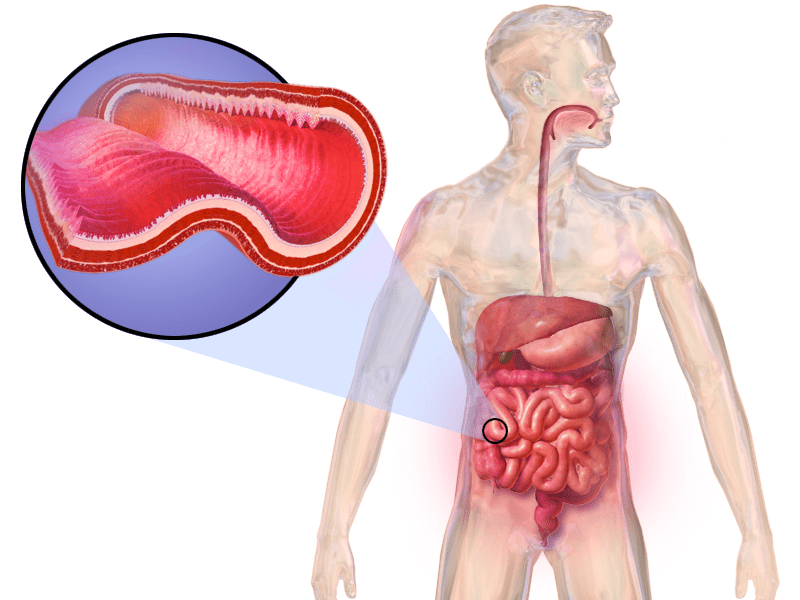Crohns Disease is a chronic and potentially progressive condition that causes inflammation of the digestive tract that comes with a long list of unpleasant and potentially frightening side effects of varying severity. Know what’s normal, what’s not, and when it’s time to see your Doctor.
-
Diarrhea
Diarrhea is considered a mild to moderate symptom of Crohns Disease despite many patients naming it as the most difficult one to deal with. While it can be unpleasant it’s not usually cause for concern, provided you take care to avoid dehydration. To minimize your chances of experiencing an episode, don’t indulge in greasy or fried foods as much as possible and avoid eating spicy or high fiber foods.
-
Fever
Fever is a moderately severe symptom, caused by the near constant inflammation associated with Crohn’s. It is important to keep an eye on any fevers you experience, especially if you are on Crohn’s medication that surpasses the immune system, which increases the risk of infection or even developing an internal abscess. If your fever breaks 100.5 Fahrenheit, it has become a severe symptom and it’s important to see your Doctor right away for treatment.
-
Fatigue

Fatigue is a symptom that appears with all severities of Crohn’s Disease that is attributed to by a number of factors. Blood loss, inflammation, and vitamin deficiency all contribute to the exhaustion people with Crohns experience. To improve your energy levels, regular blood testing is recommended to help detect Anemia or Vitamin D deficiencies. Regular doses of prescribed supplements and anti inflammatories have yielded positive results in patients suffering from fatigue.
-
Abdominal Pain and Cramps
Cramping and Abdominal Pain is an unfortunate reality of life with Crohns, occurring at every level of severity. Caused by the internal inflammation and worsened by other symptoms such as diarrhea, it can be a near constant burden. Pain that does not interfere with your ability to eat or walk around is considered mild, but anything that keeps you from your day to day activities is moderate to severe and warrants a visit to your doctor so they can check for complications and help manage your pain.
-
Blood in Your Stool
Finding blood in your stool is one of the symptoms that might seem downright frightening but it is important to remain calm. It is advised that you visit your doctor if you experience any type of rectal bleeding, though there are many causes, most of which are not severe. People living with Crohns Disease may find blood in their stool as a result of gastrointestinal ulcers, irritation from inflammation and diarrhea, or something as mild as a small tear in the anus. It is important to get checked out at the first signs of rectal bleeding, especially with Crohns, as it can worsen or cause conditions like Anemia and exacerbate the rest of your symptoms.
-
Mouth Sores
While canker sores and other mouth irritations aren’t the most common symptom of Crohns, it is important to remember that it can affect the entire digestive tract, from mouth to rectum. Inflammation in the mouth will typically appear as mouth sores, but can also be found in tender and bleeding gums. While this is considered a mild symptom, it can be painful and use of oral pain relief and medicated mouthwash is recommended.




